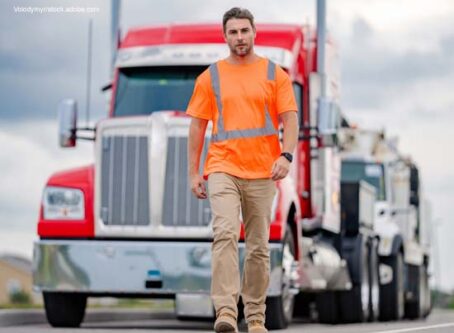OOIDA opposes bills in two states for snow and ice vehicle mandates
As winter weather continues in parts of the nation, two northeastern state legislatures are looking at bills that cover concerns about snow and ice removal from atop cars and trucks.
Rules covering concerns about accumulations atop vehicles are already in place in states that include Alabama, Connecticut, Georgia, Iowa, Michigan, New Hampshire, New Jersey, Pennsylvania, Rhode Island and Wisconsin.
Supporters say a snow and ice rule makes enforcement easier. Others say it creates a significant deterrent for not cleaning off a vehicle following a snow or ice storm.
Pennsylvania
Pennsylvania law already allows police to ticket car and truck drivers, making them subject to fines of $200 to $1,000 if the wintry precipitation causes serious injury or death.
Sen. Lisa Boscola, D-Northampton, is behind a renewed effort on the issue of ice removal from vehicles. The Senate voted unanimously one year ago to advance the effort. House lawmakers, however, did not take the issue up for discussion.
The bill’s reintroduction last month came one day after an ice projectile reportedly fell from a tractor-trailer on Interstate 80 near Smithfield Township, Monroe County. One person in the passenger vehicle struck by the projectile was injured.
Boscola’s bill would authorize law enforcement to issue tickets solely for failure to clear their vehicles of snow and ice.
In prepared remarks, she describes her bill as a “common-sense proposal to protect motorists and their passengers from the dangers of flying snow and ice missiles.”
Boscola has added that her bill is about raising awareness for a potentially hazardous issue. She said that police would not be required to issue tickets.
Drivers would be required to make “reasonable efforts” to remove snow or ice from all parts of their vehicles within 24 hours of a weather event.
Offenders would face a maximum fine of $1,500 if the wintry precipitation causes serious injury or death. The bill would include an additional protection allowing police to ticket drivers for fines of $25 to $75 for failure to clear snow or ice before they take to the roads.
As written, truck operators would be excused if they are on their way to a facility to remove accumulated snow or ice. In addition, violations would not be issued if compliance would cause the trucker to violate any federal or state law or regulation regarding workplace safety, or if it would be a health or safety threat.
The bill, SB114, is in the Senate Transportation Committee.
Vermont
In nearby Vermont, a bill in the House Transportation Committee would create fines for driving before clearing any snow or ice accumulations.
Sponsored by Rep. Cynthia Browning, D-Arlington, H65 specifies clearance from “any trailer or semi-trailer, to the extent needed to avoid a threat to persons or property caused by the dislodging of accumulated ice or snow or by obstruction of the operator’s view.”
Violators operating large trucks would face minimum $100 fines. Subsequent offenses could result in fines of at least $500. Oher motorists would face fines of $25 to $75.
Operators would not be liable for snow or ice that accumulates on a vehicle while out on the road.
OOIDA reaction
The Owner-Operator Independent Drivers Association is opposed to rules that permit police to pull over drivers whose vehicles were not cleared of snow or ice. They point out that facilities are not readily available in states to accommodate clearance mandates on trucks. Another problem is the practicality of requiring people to climb on top of large vehicles, and doing it in less-than desirable conditions.
“The accumulation of snow and ice on any vehicle has the potential to negatively impact highway safety,” Matousek said. “However, when it comes to commercial motor vehicles, there’s really no practical or safe way of removing it from the top of a trailer, especially during winter weather conditions.
He points out that in many cases it might also violate occupational safety laws.
“So it’s a problem with no realistic or meaningful solution, and imposing significant fines on truckers will do nothing to address the underlying issue.”
Other legislative activities of interest for Pennsylvania and Vermont are available.









